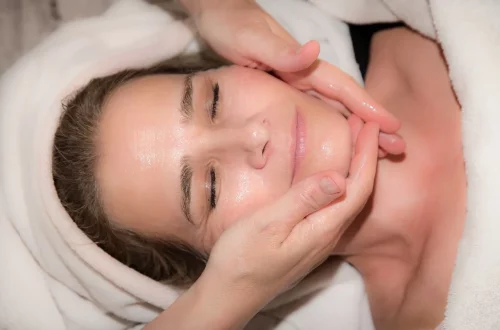
Discovering the Unique Aroma of Eucalyptus: What Does It Smell Like?
The world of scents is a fascinating realm, filled with a plethora of aromas that can evoke memories, feelings, and even physical responses. Among these scents, eucalyptus stands out as a particularly distinctive fragrance that captures attention. Known for its refreshing and invigorating qualities, eucalyptus has long been appreciated not only for its aroma but also for its various uses ranging from aromatherapy to household cleaning products. Its unique smell is often described as fresh and slightly medicinal, reminiscent of a crisp, clean environment.
Eucalyptus is derived from the leaves of the eucalyptus tree, native to Australia but now cultivated in various parts of the world. The essential oil extracted from these leaves is potent and aromatic, containing a variety of compounds that contribute to its characteristic scent. This oil has been a staple in traditional medicine and modern wellness practices, often linked to feelings of clarity and alertness. The allure of eucalyptus lies in its ability to transport one to a serene, natural setting, evoking images of lush forests and open skies.
As we delve deeper into the essence of eucalyptus, we explore its various aromas and the factors that shape our perception of this captivating scent. The exploration of eucalyptus not only enhances our understanding of this fragrance but also enriches our appreciation for the natural world and its myriad olfactory wonders.
The Distinctive Characteristics of Eucalyptus Aroma
Eucalyptus is renowned for its distinct aroma, which is often described as fresh, clean, and slightly sweet. This unique scent can be attributed to the compounds found in eucalyptus leaves, particularly eucalyptol, which is known for its invigorating properties. Eucalyptol contributes to the menthol-like sensation that many people associate with eucalyptus, giving it a refreshing quality that can be both calming and stimulating.
The olfactory experience of eucalyptus can vary depending on the specific species of the tree, with over 700 different types of eucalyptus trees found worldwide. Some varieties produce a stronger, more potent scent, while others may have a milder aroma. For example, the eucalyptus globulus, commonly known as the blue gum tree, is often considered to have the most potent fragrance, making it a popular choice for essential oil extraction.
When inhaled, eucalyptus has the ability to clear the mind and awaken the senses. Many people find that the aroma can help improve focus and concentration, making it a popular choice in workplaces and study environments. Additionally, eucalyptus is often used in aromatherapy to enhance feelings of relaxation and well-being. The scent is believed to promote a sense of clarity, making it a favorite among those seeking a mental boost.
Furthermore, the aroma of eucalyptus is often associated with cleanliness. This has led to its inclusion in various household cleaning products, air fresheners, and personal care items. The refreshing scent can help to mask unpleasant odors and create a sense of a clean, sanitized space.
In summary, the distinctive characteristics of eucalyptus aroma make it a powerful and versatile scent, appreciated in various contexts from personal care to aromatherapy. Its refreshing qualities, coupled with its ability to enhance mental clarity, have solidified its place as a beloved fragrance in many cultures.
How Eucalyptus Aroma Affects Our Mood
The scent of eucalyptus is not only pleasant but also has the potential to influence our mood and emotional state. Aromatherapy, which involves the use of essential oils to promote physical and mental well-being, recognizes eucalyptus as a valuable oil for uplifting the spirit and enhancing mood.
When inhaled, eucalyptus can stimulate the production of neurotransmitters such as serotonin and dopamine, which are essential for regulating mood and feelings of happiness. Many individuals report feeling more energized and focused after experiencing the aroma of eucalyptus, making it an excellent choice for combating fatigue and mental fog.
Moreover, the refreshing quality of eucalyptus can have a grounding effect, helping to alleviate stress and anxiety. Inhaling this scent may evoke feelings of being in nature, which can be incredibly soothing. The connection to the great outdoors can remind individuals of tranquil moments spent in nature, promoting a sense of peace and relaxation.
Eucalyptus can also be beneficial during periods of emotional overwhelm. Its crisp and invigorating scent can act as a mental reset, providing clarity and renewed energy. This can be particularly helpful in high-stress environments or during challenging times when one may feel mentally drained.
For those who practice mindfulness or meditation, incorporating eucalyptus into these routines can enhance the overall experience. The aroma can help create a serene atmosphere, allowing individuals to focus better and connect more deeply with their thoughts and feelings.
In conclusion, the aroma of eucalyptus offers a range of mood-enhancing benefits. From promoting mental clarity to alleviating stress, this unique scent is a powerful ally in our pursuit of emotional well-being. Its refreshing quality can invigorate the mind and spirit, making it a favorite among those seeking to uplift their mood.
Exploring the Uses of Eucalyptus Beyond Aroma
While the scent of eucalyptus is widely appreciated, its uses extend far beyond its aromatic qualities. Eucalyptus has been utilized in various applications, ranging from traditional medicine to modern wellness practices, showcasing its versatility and effectiveness.
In traditional medicine, eucalyptus leaves have been used for centuries by Indigenous Australians for their medicinal properties. The leaves were often crushed and applied to the skin to relieve pain or used in poultices to treat respiratory ailments. The essential oil derived from eucalyptus is also known for its antiseptic properties, making it a popular choice for treating minor cuts and wounds.
In modern times, eucalyptus oil is widely used in aromatherapy and holistic health practices. Its ability to support respiratory health is particularly noteworthy. Many people use eucalyptus oil in steam inhalation treatments to alleviate congestion and promote easier breathing. The oil’s anti-inflammatory properties can help soothe irritated airways, making it beneficial for those suffering from colds, allergies, or sinusitis.
Additionally, eucalyptus has found its place in personal care products. Its refreshing aroma makes it a common ingredient in shampoos, soaps, and body lotions. The oil can also be found in ointments and balms designed to relieve muscle tension and soreness, offering a natural alternative for pain relief.
In the realm of cleaning products, eucalyptus oil is celebrated for its antibacterial and antiviral properties. Many eco-friendly cleaning solutions incorporate eucalyptus as a key ingredient, harnessing its natural disinfecting abilities while imparting a delightful scent. This makes it a popular choice for households looking to maintain a clean and fresh environment without harsh chemicals.
In summary, the uses of eucalyptus extend well beyond its unique aroma. From traditional medicine to modern wellness applications, eucalyptus has proven to be a versatile and beneficial ingredient in various aspects of life. Its refreshing scent and numerous health benefits make it a valuable addition to our daily routines.
Creating a Eucalyptus-Inspired Environment
Harnessing the refreshing aroma of eucalyptus can transform any environment into a serene and invigorating space. Whether you want to enhance your home, workspace, or even a wellness area, incorporating eucalyptus can create a calming atmosphere while providing numerous benefits.
One of the simplest ways to infuse a space with eucalyptus is through essential oils. Using a diffuser, you can disperse the uplifting scent throughout a room, promoting relaxation and clarity. Experimenting with different blends can enhance the experience; combining eucalyptus with lavender or lemon can create an aromatic profile that is both refreshing and soothing.
For a more direct approach, consider making eucalyptus bundles to hang in your shower. As the steam rises, it releases the essential oils, creating a spa-like experience while you bathe. This not only fills the bathroom with a delightful scent but also offers the therapeutic benefits of eucalyptus, making it a perfect addition to your self-care routine.
Incorporating eucalyptus plants into your home décor is another excellent way to enjoy its aroma. The living plant emits a subtle scent and brings a touch of nature indoors, enhancing the overall ambiance. Eucalyptus leaves can also be dried and used in potpourri or as decorative elements in your home.
For those with a garden, planting eucalyptus trees can provide a long-term source of fresh eucalyptus leaves. Not only will you enjoy their fragrance, but the trees can also serve as a natural privacy screen or shade provider, enhancing the outdoor space.
In conclusion, creating a eucalyptus-inspired environment can elevate your everyday experience. Whether through essential oils, plants, or DIY projects, the aroma of eucalyptus can transform spaces into calming havens, providing both aesthetic and therapeutic benefits.
In summary, eucalyptus is more than just a fragrance; it is a versatile ingredient with a rich history and numerous applications. Whether you are drawn to its invigorating scent, its mood-enhancing properties, or its practical uses, there is no denying the unique allure of eucalyptus.
**Disclaimer:** This article is for informational purposes only and does not constitute medical advice. For any health-related issues or concerns, please consult with a qualified healthcare professional.




